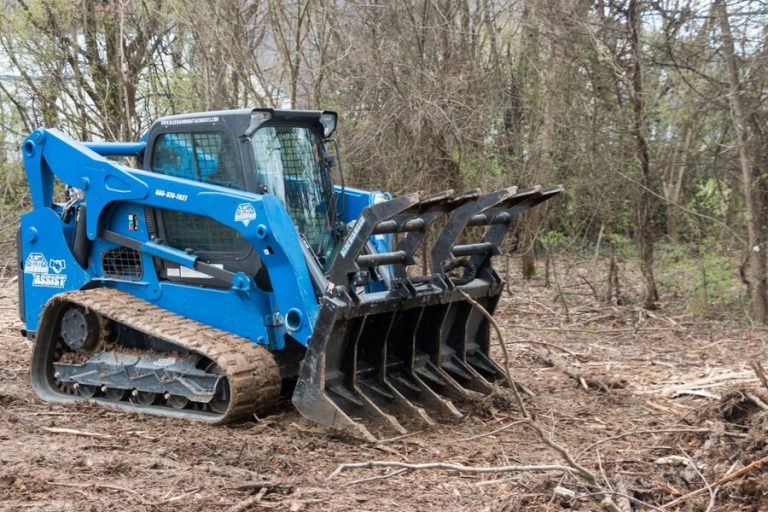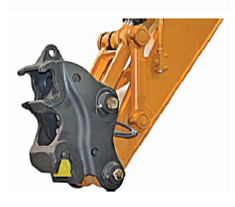Winterizing Your Commercial Generator
Generators play a vital role in keeping you prepared for emergencies. However, a generator that isn’t properly winterized can leave you down and out when it matters most. Discover the importance of winterizing your generator and get tips to do it properly with H.O. Penn Machinery.
Should I Winterize My Generator?
If you live in an area that sees temperatures near or below freezing, the answer to this question is a resounding yes. Between harsh conditions and the strain on the electrical power grid when it’s cold, power outages are most common during the winter months. If your generator is not properly prepared, you may be in for a shock when you go to start it up and it’s too cold to operate. Winterizing your generator ensures you don’t lose valuable production time.
Common Winter Generator Issues and Troubleshooting
As winter settles in, generators face a unique set of challenges that can impede their reliable operation. Understanding and troubleshooting these common issues is crucial for ensuring your generator is ready when you need it most:
- Difficulty starting: Cold temperatures can cause fuel to thicken, making it challenging for the generator to start. To troubleshoot, ensure that the fuel is appropriate for winter conditions, and consider using a fuel additive to prevent thickening. Additionally, check the spark plug and ignition system for any issues that may hinder the starting process.
- Fuel line freezing: In freezing temperatures, fuel lines are susceptible to freezing, disrupting the fuel flow to the generator. To address this, use winter-formulated diesel or add a fuel anti-gel additive to prevent freezing. Installing insulation or heating elements around the fuel lines can also provide additional protection against freezing.
- Battery-related challenges: Cold weather can significantly impact battery performance, leading to difficulties in starting the generator. Regularly check the battery’s charge, and if it shows signs of weakness, consider replacing it before winter sets in. Keep the battery warm by insulating it or using a battery heater, ensuring optimal functionality in chilly conditions.
By addressing these common winter-related generator issues promptly and applying troubleshooting tips, businesses can enhance the reliability of their generators and be better prepared for unexpected power outages during the colder months.
Tips to Prepare a Generator for Winter
Keep these tips in mind as winter approaches:
- Check the owner’s manual: Before you do anything to prepare your generator, take some time to find the manual and go over it. The owner’s manual will likely give you some tips specific to your model.
- Use cold-temperature liquids: Liquids like diesel fuel and oil thicken when they get cold. Their viscosity makes it harder for them to flow through your generator. You can find most oils in a thinner, low-temperature formula that prevents them from getting too thick. With diesel, you can introduce a cold flow improver (CFI) to prevent coagulation.
- Run the generator regularly: During the winter, you should run your generator at least once a week. You should also let your generator warm up for at least 10 minutes before applying a load.
- Beware the battery: Cold batteries may only work half as well as their warm counterparts. If you notice any issues with the battery before cold weather hits, replace it — and do everything you can to keep the battery warm.
How to Winterize a Generator
Prepare your generator for the winter months with these three basic steps:
- Inspect and test: First, take a look at the exterior parts of your generator and take note of any obvious concerns. Then, turn the generator on and let it run for at least half an hour. During this time, watch it closely to see if any screws are loose or any other concerns need servicing before the weather declines.
- Clean and repair: Next, you’ll want to clean your generator, replace the oil and oil filter and complete any necessary servicing. You should also clear the area around your generator, removing debris like leaves and branches to ensure adequate airflow.
- Cover: Your generator should be covered during the winter to prevent snow and rain from getting into the system. An engine heating block is also crucial here. Also known as a pre-heater or water jacket heater, this tool keeps the essential parts of your generator warm while idle so it can start and run more easily.
Stay Prepared With Commercial Generators From H.O. Penn
Quality generators perform better under any condition. At H.O. Penn, we offer commercial generators with clear winterization plans that are ready to get to work at any time of year. Learn more when you browse our selection of new, used and rental generators today.
Contact Us Find a Location



